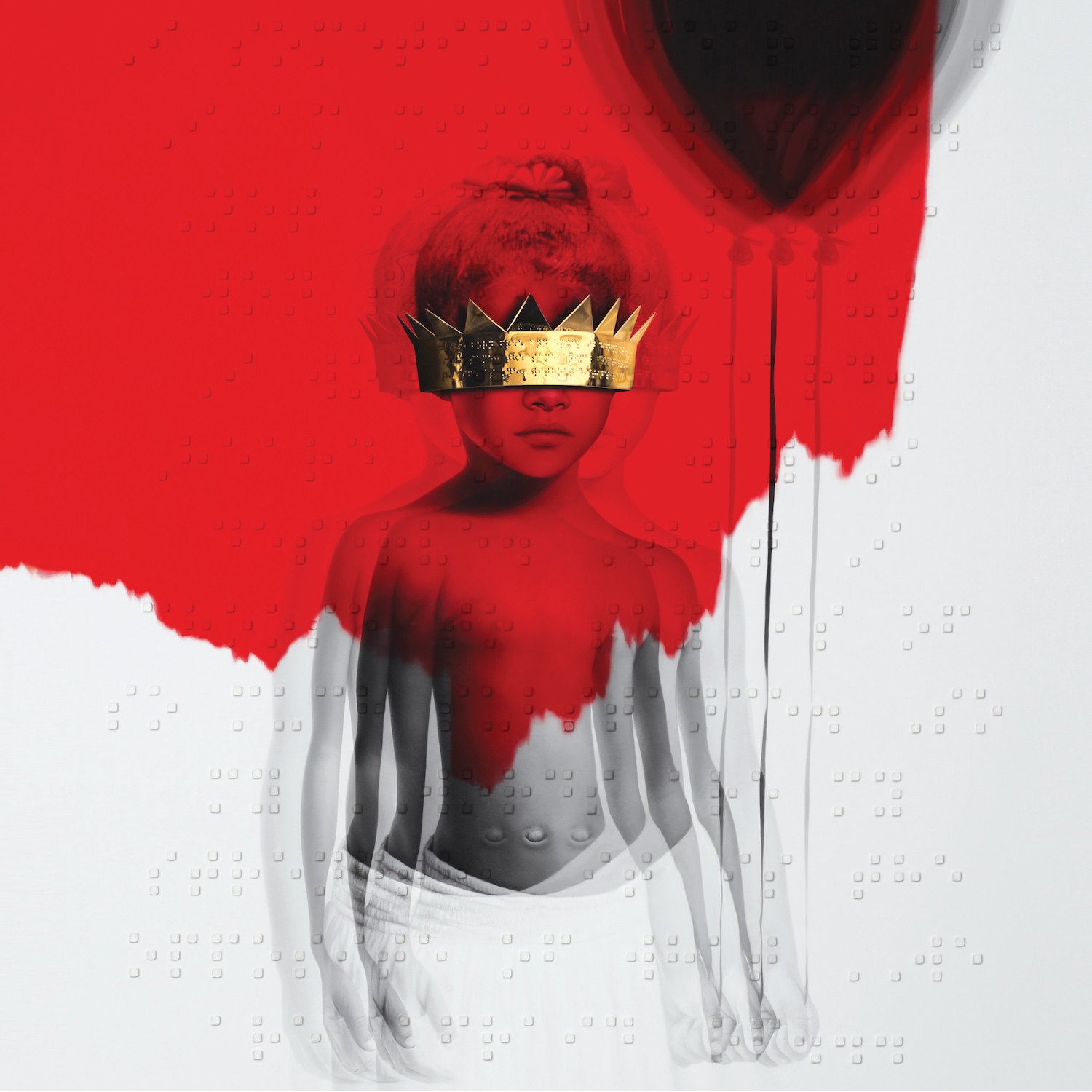- Virgin
- 2001
In 2001, Janet Jackson's career ascension reached the design of two decades. After an underwhelming debut and sophomore album -- 1982’s Janet Jackson and 1984's Dream Street, respectively --Jackson reintroduced herself, escorted by legendary pop and new jack swing production duo Jimmy Jam and Terry Lewis on 1986 album Control. Suddenly, Jackson was in full swing, nabbing Billboard Hot 100 hits, numerous awards, and sold out tour dates worldwide and becoming renowned for her intricate, high-energy dance moves. Sure, older brother and performer extraordinaire Michael Jackson was rightly dubbed the "King Of Pop," but by 2001, Janet -- still at the top of her game and seven albums in -- was a force that eschewed Michael's shadow.
Janet Jackson’s inimitable status was honored during 2001's inaugural MTV Icon event held at Sony Pictures Studios Culver City. Jackson was lauded for being the blueprint for all millennium pop stars -- and I mean all: Tyrese, Busta Rhymes, Aaliyah, and Britney Spears were just a handful of those who presented throughout the night, while tribute performances and video montages were broadcasted. A six-pack-baring Jackson was flanked by Outkast during the show’s opening while they performed "Ms. Jackson," and at one point André 3000 affectionately called Jackson "Penny" after her character on 1970s sitcom Good Times. In a now-awkward twist after longstanding tension between Justin Timberlake and Jackson, a pre-recorded *NSYNC tribute to her 1993 coffee-shop-esque hit "That's The Way Love Goes" was also aired. The show-stealer of the night arguably belonged to Pink, Mýa, and Usher, each at the height of their careers, performing a three-part dance suite of "Miss You Much," "Alright," and "The Pleasure Principle" before rejoining for a "Rhythm Nation" encore.
https://youtube.com/watch?v=v5ruDjSSawE
Jackson was highly regarded by her peers and the new generation of pop, but MTV Icon: Janet Jackson also served as a cross-promotion for her 2001 album All For You, which turns 20 tomorrow. The album came just four years after her 1997 transformative classic The Velvet Rope, where Jackson traded her signature mocha waves for bright red ringlets. In the '90s, Jackson’s albums janet. and The Velvet Rope effortlessly balanced sensuality and social consciousness, but on the latter album, Jackson contemplated her existence with a grungy fashion aesthetic and depressive song themes.
During her hiatus from music, Jackson's marriage to longtime business partner and occasional co-songwriter René Elizondo Jr. crept towards its end. The two were first acquainted in the mid-'80s while Elizondo was a backup dancer for Jackson’s older sister Latoya. Marrying on March 31, 1991 at their home in Rancho Santa Fe, Jackson and Elizondo had been tight-knit since the singer's Control era, but the couple evaded questions about their relationship status. Separating in January 1999, Elizondo later filed for divorce in 2000, asking for $10 million in damages saying that Jackson agreed to share profits from Rhythm Nation 1814.
Staggered by her marriage being exposed -- during a tumultuous divorce, no less -- Jackson openly spoke about Elizondo in a 2001 interview with Entertainment Weekly:
For almost 13 years, Jackson and Elizondo were joined at the swiveling hip. "I think maybe once -- no, twice -- we were away from each other, for at the very most a week," she says. "People always said, 'Don't you guys get tired of each other?' And we didn't. We really didn't."
The struggle to maintain an equilibrium between business and pleasure soon crumbled their marriage. Meanwhile Jackson continued her budding film career as Denise Gaines, love interest to Professor Sherman Klump in the 2000 Eddie Murphy comedy Nutty Professor II: The Klumps, and reconnected with Jam and Lewis to embark on All For You. The album is both wondrous and intimate; starting with an intro featuring a lighthearted studio conversation between Jackson, Jam, and Lewis, various outtakes and chats between the three are woven throughout the album.
After blasting a former friend on industrial opener "You Ain't Right," Jackson launches into a carefree spirit on the album's title track. Jackson was age-defying in the animated e-girl visuals for "All For You," which became one of the biggest hits of a career filled with them. The song spent seven consecutive weeks at #1 on the Billboard Hot 100 -- her 10th and final single to top the chart -- and later received a Grammy for Best Dance Recording in 2001. Jackson was a product of the '80s, her breakthrough era, and the track was a nod to Italian-American group Change, sampling their 1980 single "Glow Of Love."
Despite Jackson's personal hurdles, the essence of All For You was optimistic in a time where R&B and pop post-breakup albums were often forlorn. One year prior to All For You, Erykah Badu channeled her anxieties as an unexpected single mother on sophomore album Mama’s Gun. In 2001, a 23-year-old Usher charmingly reveled in his bachelor lifestyle with copious options on third album 8701. All For You sat firmly between both albums, with Janet finding acceptance in her newfound singledom.
The album was genre-shifting with ample production experimentation, a far cry from the deep house grooves and R&B-lite of Jackson's previous albums. All that sonic exploration included at least one wrong turn: "China Love" is titled in a cringeworthy manner that would probably make a Harajuku Girl-era Gwen Stefani blush. And as pointed out in a brief New York Times album review, while the delicate chimes and tablas on "China Love" are Asian-inspired, the song is named after the wrong country: "A gamelan sample peals through 'China Love' (and Ms. Jackson doesn't care that gamelans are Indonesian)."
In her 2002 concert film Janet: Live In Hawaii, the latter part of the show cuts to a risque performance of erotic deep cut "Would You Mind?" Strapping a male audience member to a rotating table as she teasingly straddles him, the fan hyperventilates while a catsuit-donning Jackson transforms into a NSFW dominatrix. Jackson continued her dominating streak on "Son Of A Gun (I Betcha Think This Song Is About You)," a darkly humored collaboration with Carly Simon incorporating Simon's '70s hit "You're So Vain," where Jackson inexplicably goes after her ex-husband with ominous lyrics: "Oh, who you gonna give it to?/ Who you gonna steal it from?/ Who's your next victim?/ Oh, who you gonna lie to?/ Who you gonna cheat on?/ Who you gonna leave alone?" The tag-team effort between Simon and Jackson is unfitting as Simon struggles to pace her rap towards the end of the song. On the redeemable "Son Of A Gun" remix, campy hip-hop darling Missy Elliott replaces Simon and the music video shows Jackson torturing a former lover, summoning zombies and ravenous spiders.
Returning to a lighter note, Jackson drops her relationship baggage on the country-tinged "Someone To Call My Lover." The track glistens with a guitar loop from America's "Ventura Highway" and a piano interpolation of "Gymnopédie No. 1" by French composer Erik Satie. As legend tells it, Jackson rediscovered the Satie composition at a Ralph Lauren store, first hearing it in a commercial as a child. "Someone To Call My Lover" reconnected Jackson with her unworried childhood as she sought new love. Recorded for Nutty Professor II (hence the "nutty-nutty-nutty for me" chorus), "Doesn’t Really Matter" is a glowing rhapsody that streamlines electropop and R&B. At $2.5 million, the futuristic Japanese-inspired Joseph Kahn visuals made for one of the most expensive music video productions ever.
As All For You debuted at #1 on the US Billboard 200, an unapologetic Jackson made a grand closing on her marriage while remaining a pop powerhouse. At the time, the album seemed like one more triumph in a career full of them, but in hindsight it stands as the end of her imperial phase. Even though Jackson remains a living legend, ever since her 2004 Super Bowl "wardrobe malfunction" debacle alongside Timberlake, the remainder of her catalog hasn't reached the same blockbuster levels as her previous albums. Still, Jackson’s career evolution has been a testament to her staying power and influence across genres and current girl power acts like Tinashe, Normani, and Victoria Monet. Twenty years later, MTV could easily put together a whole new special spotlighting another generation of pop stars inspired by Janet, many of whom probably grew up on All For You.






